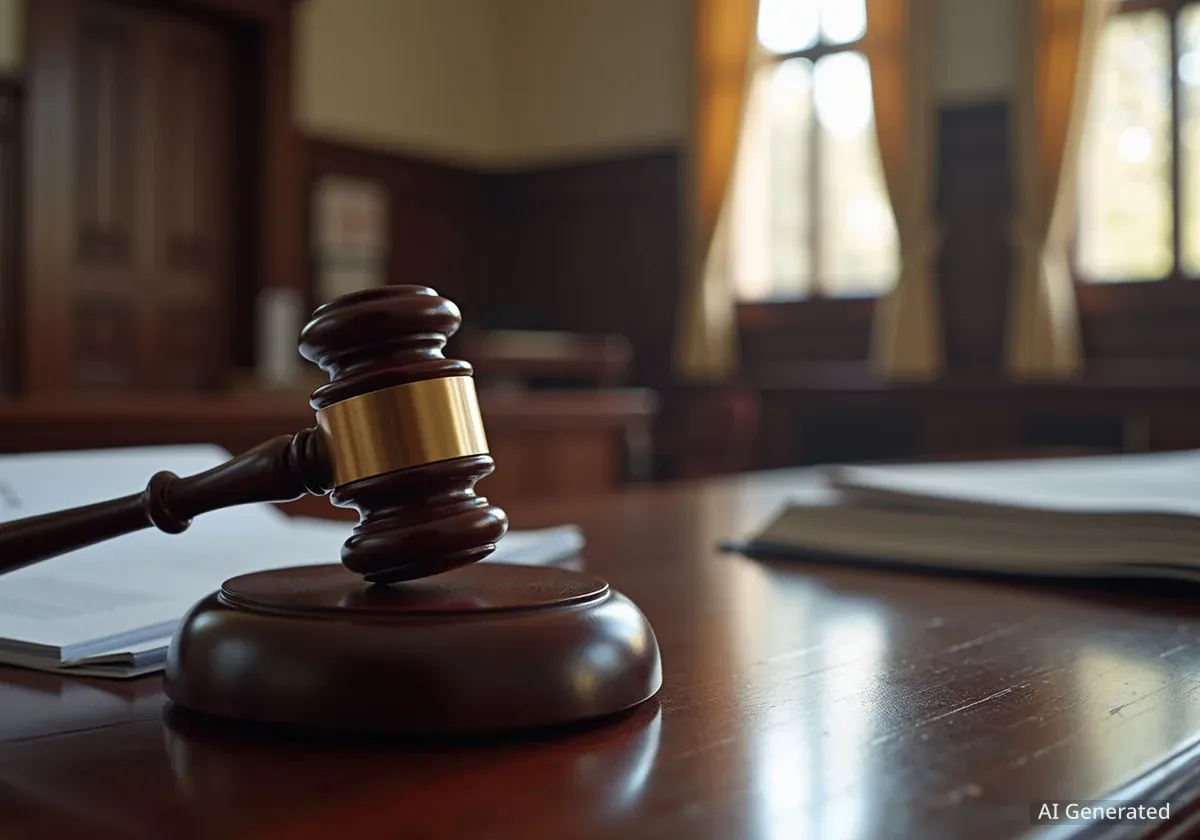A federal judge has revised a previous order, releasing OpenAI from the broad requirement to preserve all user-generated ChatGPT data indefinitely. This development marks a significant change in the ongoing copyright infringement lawsuit filed by The New York Times against the artificial intelligence company.
The new ruling, issued on October 9 by Judge Ona T. Wang, modifies a May 13 order that OpenAI had strongly opposed. While the company is no longer required to save most new data logs, information already preserved under the original mandate will remain accessible for the legal proceedings.
Key Takeaways
- A federal court has lifted the requirement for OpenAI to save all new ChatGPT output logs on an ongoing basis.
- The decision is part of the copyright infringement lawsuit brought by The New York Times in 2023.
- OpenAI had previously argued that the data preservation order was an overreach and posed privacy risks.
- Data logs already saved under the original order remain accessible to the plaintiffs.
- OpenAI must still preserve data from specific accounts flagged by The New York Times.
Details of the New Court Ruling
The latest order from federal judge Ona T. Wang directly addresses the data preservation obligations placed on OpenAI. Filed on October 9, the ruling states that OpenAI is no longer required to "preserve and segregate all output log data that would otherwise be deleted on a going-forward basis."
This change effectively ends the indefinite data retention mandate for most user interactions with ChatGPT. According to the court filing, the company's obligation to maintain logs beyond its standard procedures ceased as of September 26. However, the ruling includes important exceptions.
Any data that was already preserved under the initial May 13 order must be maintained and remains available for the lawsuit. Furthermore, OpenAI is still legally required to retain all logs associated with specific user accounts that have been identified and flagged by The New York Times as relevant to its case.
Background of the Legal Dispute
The legal conflict began in 2023 when The New York Times filed a lawsuit against OpenAI and its partner, Microsoft. The suit alleges that the companies used millions of articles from The Times without permission or compensation to train their large language models, including the one that powers ChatGPT. The New York Times is one of several major publishers to take legal action against AI firms over copyright concerns.
The Original Data Preservation Order
The original court order from May 13 was a critical component of the discovery process for The New York Times. It allowed the newspaper's legal team to access and analyze a vast amount of ChatGPT output data to search for evidence supporting its claims of copyright infringement.
OpenAI consistently opposed this requirement, describing it in legal filings as a significant overreach. The company argued that retaining such a large volume of user data posed substantial risks to user privacy and data security. OpenAI's legal team contended that the scope of the order was overly broad and burdensome.
Despite these arguments, Judge Wang initially sided with the plaintiffs. In a prior ruling, the judge determined that ChatGPT users were "non-parties" to the lawsuit, which justified the preservation of their data as potential evidence. By July, lawyers for The New York Times had begun their review of the preserved logs.
A Growing Legal Challenge for AI
The New York Times is not alone in its legal fight. Several other prominent news organizations, including The Intercept and Alternet, have filed similar copyright infringement lawsuits against OpenAI. Mashable's parent company, Ziff Davis, also filed a lawsuit in April, alleging unauthorized use of its copyrighted content for training AI systems.
Implications for the Ongoing Lawsuit
Lifting the indefinite preservation order is a procedural victory for OpenAI, reducing its operational burden and addressing some of its stated privacy concerns. The company no longer needs to continuously archive massive amounts of new user data specifically for this case.
However, the core of the lawsuit remains unaffected. The New York Times still has access to the substantial volume of data that was collected between May and September. This preserved data will continue to be a central element as the legal teams build their respective cases.
The requirement to maintain logs from accounts flagged by the newspaper ensures that the plaintiffs can still investigate specific instances of potential copyright infringement. This hybrid approach allows the lawsuit to proceed with existing evidence while relieving OpenAI of the indefinite, large-scale data retention it opposed.
The case continues to be a landmark legal battle, with its outcome potentially setting a major precedent for how copyrighted material can be used to train artificial intelligence models in the future. The balance between innovation, intellectual property rights, and user privacy remains at the heart of the dispute.





